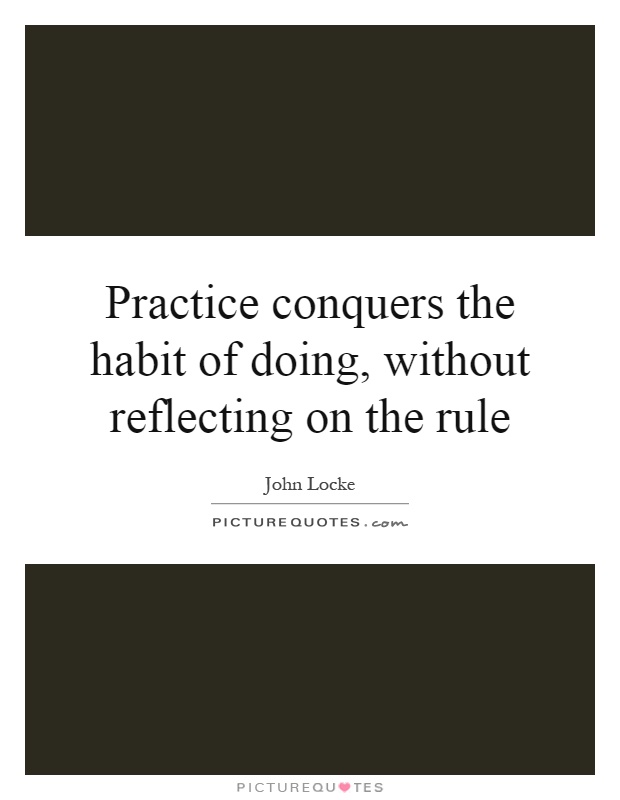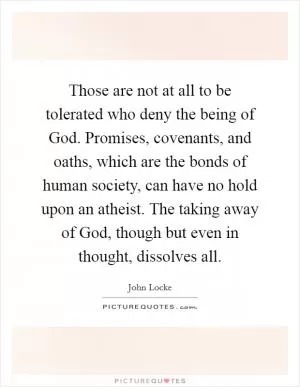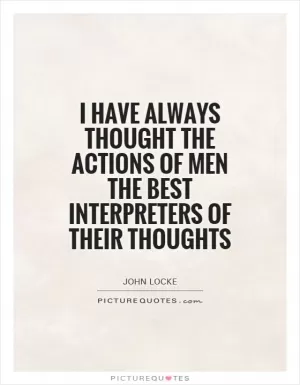Practice conquers the habit of doing, without reflecting on the rule

Practice conquers the habit of doing, without reflecting on the rule
John Locke, a prominent philosopher of the Enlightenment era, believed in the power of practice to shape human behavior. He famously stated, "Practice conquers the habit of doing, without reflecting on the rule." This statement encapsulates Locke's belief that repeated actions can become ingrained habits, even without a conscious understanding of the underlying principles or rules.Locke's philosophy on habit formation and behavior is rooted in his empiricist beliefs. He argued that the mind is a blank slate at birth, and that all knowledge is derived from sensory experience. In this context, habits are formed through repeated experiences and actions that are reinforced over time. Through practice, individuals can develop automatic responses to certain stimuli, without necessarily understanding the reasons behind their actions.
Locke's emphasis on practice as a means of shaping behavior is reflected in his views on education and moral development. He believed that children should be exposed to positive influences and experiences in order to cultivate virtuous habits. By practicing good behavior, individuals can internalize moral principles and act in accordance with them, even without consciously reflecting on the rules that govern their actions.












 Friendship Quotes
Friendship Quotes Love Quotes
Love Quotes Life Quotes
Life Quotes Funny Quotes
Funny Quotes Motivational Quotes
Motivational Quotes Inspirational Quotes
Inspirational Quotes